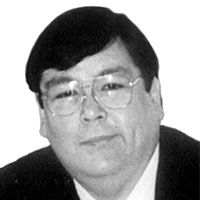Who is the big spender Cardinal Rosales and the Bishops referred to?

It is untypical of our Church leaders to specify the political personality or personalities being adversely referred to by a Pastoral Letter. Even at the height of abuse, oppression and repression during the Marcos dictatorship, the Pastoral Letters that were issued then by the leaders of the Roman Catholic Church exemplified the targeting of the sin instead of the sinner.
Thus, it came as no surprise that the recent Pastoral Letter issued by Manila Archbishop Gaudencio Cardinal Rosales and 15 Bishops of the Manila Metropolitan Ecclesiastical Province did not specify a particular presidential candidate when they warned voters not to elect big election spenders. The 16 Church leaders typically focused on alerting voters of the danger that big election spenders pose to the country.
“Excessive campaign expenses in the past did not augur good and responsive governance,” Cardinal Rosales and the 15 other bishops stated in their Pastoral Letter. The Pastoral Letter added: “Freedom in an election means no physical coercion and no use of threat or money to influence or buy votes.”
The PCIJ (Philippine Center for Investigative Journalism) had earlier noted that more than P2 billion was already spent by candidates on political advertisements. This would make the 2010 elections incur the biggest advertising expenditure in Philippine history.
The Pastoral Letter urged voters to scrutinize the positions of the candidates on the issues of corruption and poverty which the 16 Prelates identified as the two biggest problems of the country today. “As corruption increases, poverty worsens,” the Pastoral Letter added.
The Prelates also provided guidance on how to vote: “The candidates should be scrutinized according to whether they are: God-fearing, moral, not given to vices, reverent of life and its deserved decency, consistent true friends of the poor, ever protective of the integrity of creation (friend of world ecology), simple and humble, and good examples for responsible Filipino citizenship.”
Per the AGB Nielsen ad expenditure tracking, Senator Manny Villar of the Nacionalista Party has been the biggest spender in television advertisements - spending P1.3 billion from November 1 of 2009 to March 2, 2010. Gilbert Teodoro, the administration candidate, spent P472 million during the same period. Former president Joseph Estrada of Pwersa ng Masang Pilipino was the third biggest ad spender of that period with P88 million followed by Senator Benigno Aquino III of the Liberal Party with P87 million.
Based on a projected total voters base of 50 million, a presidential and vice presidential candidate can only spend a maximum of P500 million each – inclusive of all ad spending as well as other campaign expenses.
The Pastoral Letter was reportedly initiated by Cardinal Rosales and was read in all parishes and churches of the Archdiocese and Dioceses of the Ecclesiastical Province last Sunday, March 14. The Manila Metropolitan Ecclesiastical Province includes the Dioceses of Antipolo, Imus, Malolos, Parañaque, San Pablo, Taytay, Cubao, Caloocan, Novaliches, Pasig, Puerto Princesa and the Military Ordinariate of the Philippines.
A GMA Network online report quoted Ateneo Political Science Professor Benito Lim as saying that the Pastoral Letter had targeted Manny Villar without naming him. Lim is being logical with his observation. Ad spending of Manny Villar has reached such an obscene level that it became a big issue against him early this year.
The issue worsened when Villar confirmed during a televised debate that he was spending his own money for all those ads. In political campaigns, contributions from supporters are supposed to be the norm because the logic that’s followed is that a candidate who spends a lot of his or her own money will tend to recoup this enormous expense from graft and corruption once high public office is attained.
The fact that Villar comes from a business background leads people to think that he will be inclined to treat his election expenses as investments and will therefore be expecting a return on those investments. You know that has snowballed as a big issue by the fact that Villar tried to address this in his recent TV ad.
There would seem to be more to the alarm expressed by the Prelates than just the ad spending. The trail of highly questionable transactions of Villar’s businesses, as exemplified by the C-5 Road Extension and the other Senate Ethics Case issues, must have formed a major portion of the cause for alarm.
Add to all that the allegations of Villar’s attempts to bribe Senators Juan Ponce Enrile, Richard Gordon and Jamby Madrigal. No man of God will look lightly at allegations of bribery. It is bad enough if someone is corrupt. It is worse if the corrupt individual also tries to corrupt others.
To a man of God, to be corrupted by a bribe could well be the result of a compelling need — a hungry family, the lack of funds for school tuition or a child in dire need of expensive medical attention. Under such circumstances, the bribe recipient is more of a victim than an evil person.
But to a man of God — to be the initiator of a bribe is the personal choice to undertake the very work of the devil in leading people to the wrong path in life.
* * *
Chair Wrecker e-mail and website: [email protected] and www.chairwrecker.com
- Latest
- Trending























